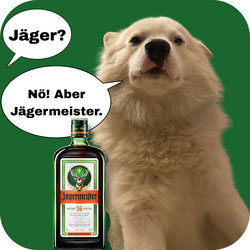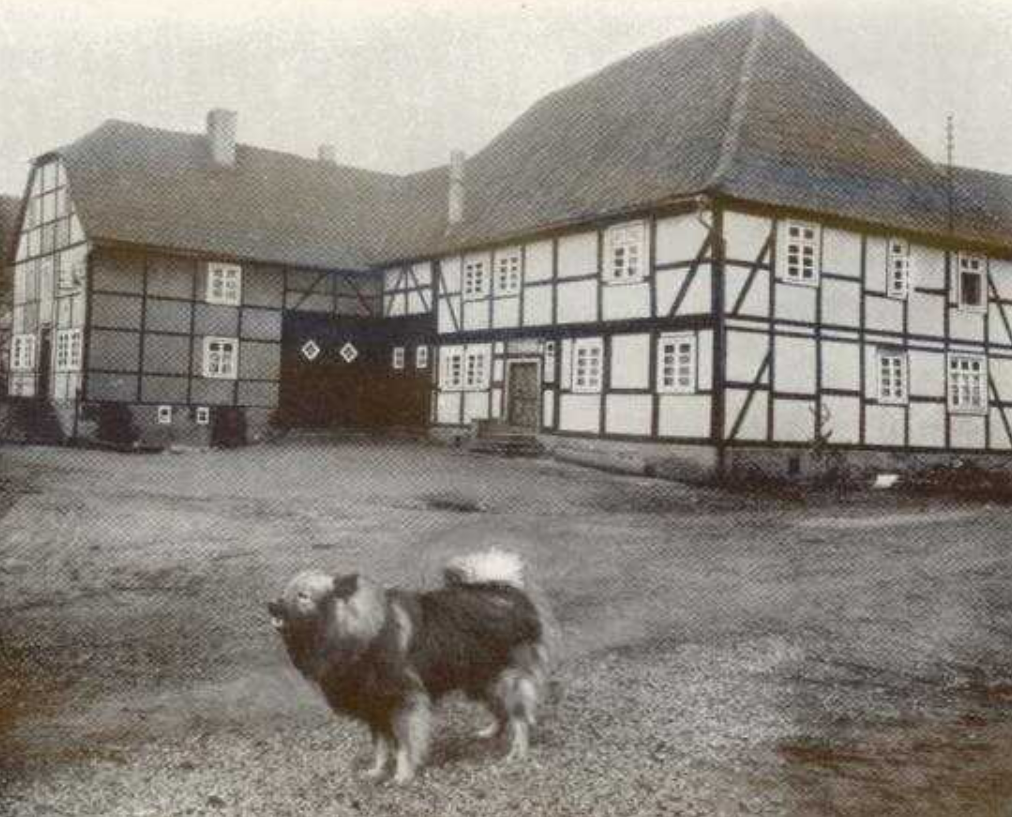About the non-poaching German Spitz

Many Spitz-like dogs around the world can certainly be used for hunting: Finnish Lapphunds are ideal for hunting predatory animals, even bears. Elkhounds are - as the name suggests - used to hunt elk. Our German Spitz, on the other hand, really has no passion for hunting! His physical structure, his short back, prohibits him from running and rushing for long periods of time. He usually only knows one "deer", the mouse, which he eagerly hunts. He also doesn't like to move out of sight of his people and essentially has an aversion to dealing with tracks and trails.
Due to this lack of hunting instinct, black Giant Spitzes and Wolfsspitzes were bred by German state hunting associations themselves in the 1950s and 1960s (for example in the "Hessen" kennel) in order to be able to give them cheaply to the farmers in the area and so on to stop the poaching of existing farm dogs which were mostly Shepherd bastards. The purchase of a German Spitz was also sometimes subsidized by the local hunters. The farmers who were provided for in this way were consistently very satisfied with their Spitzes as guard and companion dogs, when driving livestock, and when dealing with the family and especially the children, and would no longer wish for another dog.
His magnificent fur is the adornment of the large Spitz, from which the dirt falls off almost by itself, so that he never actually needs to be bathed. The dogs in particular are extremely impressive animals that everyone turns their attention to. Its desirable characteristics such as loyalty, vigilance, weather resistance, lack of tendency to poach and its impressive demeanor predestine the Spitz to be the guardian of house and yard: his thick lion's-mane-like ruff - to protect against bites from combative conspecifics - always has a suspicious-looking face facing strangers in contrast to. The body size of Wolfsspitz and Großspitz is also sufficient to impress unwanted visitors. And it seems almost striking when our big Spitzes stand at the open gate, as if there was an invisible wall in front of them. Hares can hop close by, deer can pass by, the stubborn German Spitz pays no attention.
It therefore stands to reason that when it comes to guarding your own home, you should first and foremost look after a dog that is at home, does not poach or roam around and fulfills its duties conscientiously. This is the German Spitz! And it is particularly suitable for the countryside and agriculture - at the beginning of the 20th century, almost every farm owner in the Rhineland and Westphalia had a Wolfsspitz as a guard dog. Why? Just as the hunter has his hunting dogs, the agricultural business has the dogs that are naturally best suited for this purpose. It would therefore be desirable if more people would think back and entrust their farm, their house or their apartment to the protection of the dog that has always been responsible for the family's property: the German Spitz dog!





